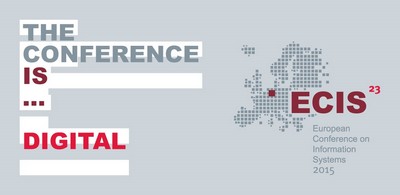Abstract
Many technological developments of the past two decades come with the promise of greater IT flexi-bility, i.e. greater capacity to adapt IT. These technologies are increasingly used to improve organiza-tional routines that are not affected by large, hard-to-change IT such as ERP. Yet, most findings on the interaction of routines and IT stem from contexts where IT is hard to change. Our research ex-plores how routines and IT co-evolve when IT is flexible. We review the literatures on routines to sug-gest that IT may act as a boundary object that mediates the learning process unfolding between the ostensive and the performative aspect of the routine. Although prior work has concluded from such conceptualizations that IT stabilizes routines, we qualify that flexible IT can also stimulate change because it enables learning in short feedback cycles. We suggest that, however, such change might not always materialize because it is contingent on governance choices and technical knowledge. We de-scribe the case-study method to explore how routines and flexible IT co-evolve and how governance and technical knowledge influence this process. We expect to contribute towards stronger theory of routines and to develop recommendations for the effective implementation of flexible IT in loosely coupled routines.
Recommended Citation
Lehrig, Tim; Krancher, Oliver; and Dibbern, Jens, "The Evolution of Routines under Flexible Information Technology" (2015). ECIS 2015 Research-in-Progress Papers. Paper 14.
ISBN 978-3-00-050284-2
https://aisel.aisnet.org/ecis2015_rip/14


